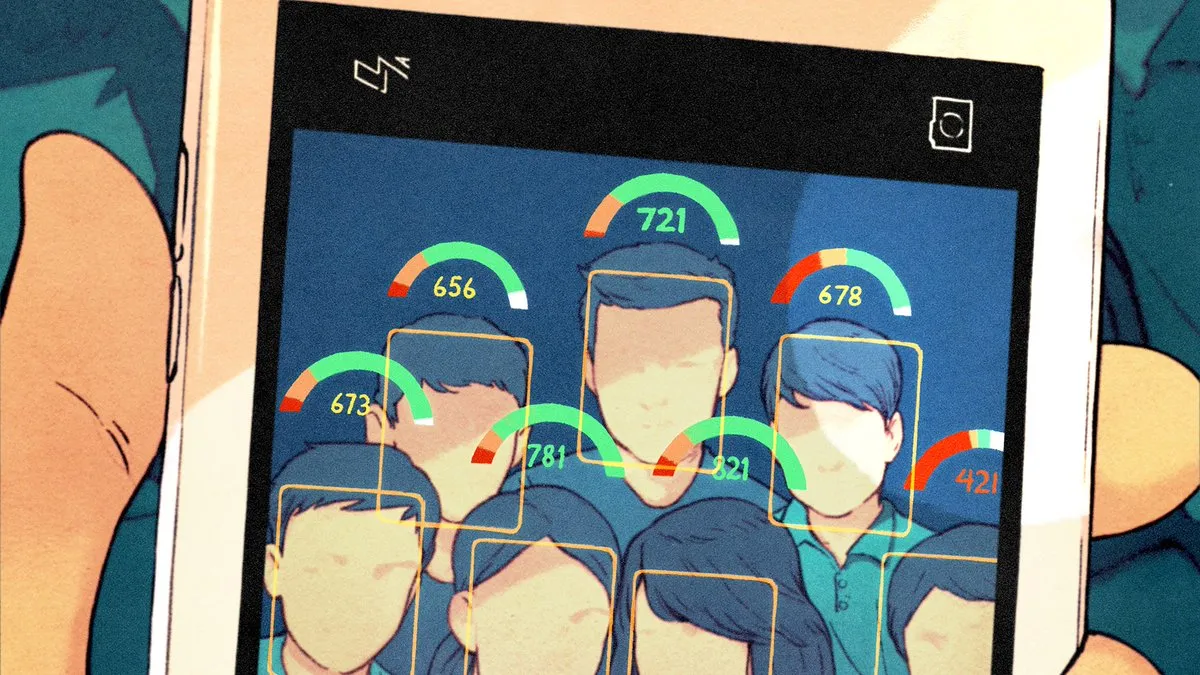Table of Contents
Kurt Mahlburg
Kurt Mahlburg is a writer and author, and an emerging Australian voice on culture and the Christian faith. He has a passion for both the philosophical and the personal, drawing on his background as a graduate architect, a primary school teacher, a missionary, and a young adults pastor. Since 2018, Kurt has been the Research and Features Editor at the Canberra Declaration. He is also a freelance writer, and a regular contributor at the Spectator Australia, MercatorNet, Caldron Pool and The Good Sauce.
Out of the ether, it would appear, Jordan Peterson, this month drew attention to a frightful Chinese-style social credit system gaining enormous traction in American institutes of higher learning.
In early February, Peterson tweeted, “Stanford has now implemented online systems to facilitate students ratting each other out (and their professors as well) all of course in the name of DIE.”
Stanford @Stanford has now implemented online syatems to facilitate students ratting each other out (and their professors as well) all of course in the name of DIE:https://t.co/9nNxnai2aY.
— Dr Jordan B Peterson (@jordanbpeterson) February 6, 2023
DIE is Peterson’s deliberately-jumbled acronym for the Holy Trinity of wokeness: Diversity, Equity and Inclusion.
Stanford’s system is called “Protected Identity Harm Reporting”. Several grim-looking students explain why anonymous snitching on fellow students to the university administration is beneficial in this video.
The online system to which Peterson war referring is Maxient — “the most trusted provider for incident reporting and behaviour records management,” according to the company’s website.
Maxient is used by 1,300 schools, colleges and universities across North America and receives 7,000 dobs a day.
“Rat on your peers! Use our handy software! Do it anonymously!” Peterson mocked in a follow-up tweet thread. “If there was a 1984 prize from the George Orwell Foundation then Maxient would deserve to win it,” he quipped.
Inspired by Peterson, a band of self-described “transgressive nerds” from MIT who run a satirical news site called The Babbling Beaver have crafted their own marketing mantra for Maxient. “Move over STASI wanabees. Hats off to you, J. Edgar Hoover. All hail Maxient, MIT’s chosen outsourced conduct management service, the digital way to build a better world by building a better student,” they tease.
“Are you now, or have you ever been, noncompliant?”
The Babbling Beaver continues its taunting takedown of the Orwellian software:
Did you use the wrong pronoun to address a preferred identity? Have you ever allowed your male gaze to fall upon the bosom of a perpetually offended feminist? Were you overheard in a midnight bull session expressing opinions contrary to established DEI policy? Did you utter the n-word in your sleep? You’ll never know what we have on you, and that’s the whole point. Step out of line and it will all come rushing back, confirming a “pattern of behaviour” in dire need of adjudication, modification, and potential defenestration.
According to its website, Maxient has been in existence for almost two decades. So why the sudden rush of attention?
Tertiary institutions have long monitored student conduct, though until recent years their record-keeping efforts centred mostly on academic dishonesty and serious incidents of harassment. With a tsunami of wokeness sweeping the West in the last half-decade, systems like Maxient’s have expanded their definition of “behaviour” to effectively include anything perceived as offensive by snowflake students.
“If you are on this website, we recognize that you might have experienced something traumatic,” Stanford University’s site, a Maxient client, tells student users. “Take a sip of water. Take a deep breath. When you are ready please proceed to review the site.”
By “review the site”, Stanford of course means “snitch on your peers”.
Universities have long been known as highly politicised environments. But as a friend of mine, who attended an American university “a million years ago” tells me, “the idea that you could resort to a secret system for dobbing in radical (or conservative) classmates would have been revolting and scandalous”.
Academia is widely acknowledged as the fountainhead of ideological and cultural trends. Very often the course of nations is determined by fashions and events that have taken place in colleges and universities years earlier.
By the mercy of God, America and other Western nations have thus far rejected a Chinese-style social credit system that tracks the behaviour of citizens and limits their freedoms and future career prospects based on compliance with socio-political diktats.
But if software like Maxient is in use on thousands of university campuses today, how long before such systems are adopted culture-wide?
All for our safety and well-being, of course.









